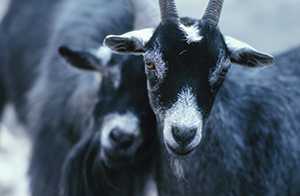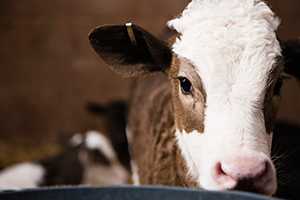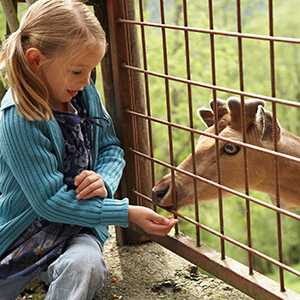E. coli Infection
Escherichia coli (E. coli) is a bacteria that normally is an important part of the healthy intestinal tracts of humans and animals. However, there are some kinds of E. coli that are harmful and can cause disease.
The most common type of E. coli infection that causes illness in people is called E. coli O157,  which produces a toxin known as Shiga-toxin. Shiga-toxin producing E. coli is abbreviated as STEC. Symptoms of infection with this germ include watery or bloody diarrhea, fever, abdominal cramps, nausea, and vomiting. The illness can be mild to severe. Young children are more likely to have severe problems with E.coli O157—including kidney failure—and can even die from E. coli O157 infections.
which produces a toxin known as Shiga-toxin. Shiga-toxin producing E. coli is abbreviated as STEC. Symptoms of infection with this germ include watery or bloody diarrhea, fever, abdominal cramps, nausea, and vomiting. The illness can be mild to severe. Young children are more likely to have severe problems with E.coli O157—including kidney failure—and can even die from E. coli O157 infections.
Animals that can spread E. coli O157 to humans include:
- cows, especially calves
- goats
- sheep
- deer.
How animals and people become infected
Most people become infected with E. coli O157 from contaminated food, such as  undercooked ground beef or raw (unpasteurized) milk, but E. coli O157 can be passed directly to people from the stool of young calves and adult cattle. E. coli O157 also can be spread from person to person, particularly in places where frequent and close contact between people occurs, such as day-care facilities.
undercooked ground beef or raw (unpasteurized) milk, but E. coli O157 can be passed directly to people from the stool of young calves and adult cattle. E. coli O157 also can be spread from person to person, particularly in places where frequent and close contact between people occurs, such as day-care facilities.
E. coli O157 is naturally found in the intestinal tracts of many farm animals, including healthy cattle, sheep, and goats. Animals can carry E. coli O157 and shed the germs in their stool but still appear healthy and clean. The germs can quickly contaminate the animals’ skin, fur, feathers, and the areas where they live and roam.
Animals can appear healthy and clean but can spread E. coli O157 to humans or other animals.
What are the symptoms of an E. coli O157 infection?
Symptoms of E. coli O157 include:
- watery or bloody diarrhea
- fever
- abdominal cramps
- nausea
- vomiting.
Symptoms usually occur 3 to 4 days after a person comes in contact with E. coli O157. Illness can range from mild to severe and life-threatening. Most people get better within 5 to 7 days. Young children infected with E. coli O157 are at highest risk for developing severe symptoms and complications, such as hemolytic uremic syndrome, which is a type of kidney failure.
If you develop any of the symptoms described above, contact your doctor and be sure to inform him or her of any recent contact that you have had with animals. Please visit CDC’s E.coli website for more information.
The best way to prevent getting E. coli from animals is to always wash your hands with soap and running water immediately after contact with animals, their environments, or their stool.
Do:
-
Wash your hands thoroughly with soap and water:
- right after touching animals.

- after touching the areas where they live and roam.
- right after touching animals.
- Use running water and soap, if possible.
- Use hand sanitizer if running water and soap are not available.
- Be sure to wash your hands with soap and water as soon as a sink is available.
- Adults should always supervise hand washing for young children.
- Use soap or a disinfectant to thoroughly clean any surfaces that have been in contact with animals: Do not let children 5 years of age and younger do this task. Children 6 years of age and older can help with cleaning and disinfecting but only if they are supervised by an adult.
- Wash your hands right after you remove shoes and clothes that have worn around cows, goats, sheep, and deer or their environments, especially if the shoes and clothes are dirty.
- Keep animals away from areas where food and drinks are prepared, served, or stored, such as kitchens or dining areas.
Do not:
- Do not allow children 5 years of age and younger, the elderly, or people with weak immune systems to handle or touch high-risk animals, for example calves and goats, or anything in the areas where the animals live and roam.
- Never allow cows, goats, sheep, and deer in schools, nursing homes, or other facilities that may have children 5 years of age or younger, the elderly or people who have weak immune systems.
- Avoid eating or drinking around animals known to spread E. coli or in areas where they live and roam.
- Do not consume raw (unpasteurized) milk, unpasteurized dairy products, or unpasteurized juices, like fresh apple cider.
Available tests and treatments
People
Your doctor will request a stool sample to be tested if you are suspected to be infected with E. coli O157. Many labs can determine if the Shiga toxin is present, and most labs can identify the O157 bacteria itself. To figure out the specific strain of the bacteria, the stool sample will be sent off to a state public health laboratory for testing. This helps determine if your infection matches or doesn’t match any current outbreak strains of E. coli.
The best treatment for E. coli O157 infection is supportive therapy, making sure to drink plenty of fluids to stay hydrated. There is no evidence that taking antibiotics or antidiarrheals (like Imodium®) is helpful, and these may actually increase the risk of a life-threatening complication called hemolytic uremic syndrome, or HUS.
Pets
Treatment is not recommended for infected animals because they do  not usually show any signs of illness with E. coli O157.
not usually show any signs of illness with E. coli O157.
However, if any pets or farm animals have diarrhea, they should be carefully watched for dehydration. If the diarrhea is severe, your veterinarian should be contacted. He or she may ask that you bring your pet in, or your veterinarian may come to see your farm animal to give fluids and restore hydration.
Educational materials
-
Stay Healthy at Animal Exhibits This Summer
CDC -
Animals in Schools and Daycare Settings
CDC - Wash Hands When Leaving Animal Exhibits [ PDF – 1 pages ]
-
I Love Petting Zoos
CDC Kidtastics Podcast -
Wash Your Hands If You Pet That Bunny
CDC Kidtastics Podcast -
Wash Your Hands if You Pet That Bunny
CDC Minute of Health
CDC reports and recommendations
-
Compendium of Measures to Prevent Disease Associated with Animals in Public Settings, 2011 [PDF – 28 pages ]
Morbidity and Mortality Weekly Report. 2011 May 6; 60(RR04):1-24 -
E. coli
Comprehensive site
- Page last reviewed: September 30, 2015
- Page last updated: September 30, 2015
- Content source:


 ShareCompartir
ShareCompartir